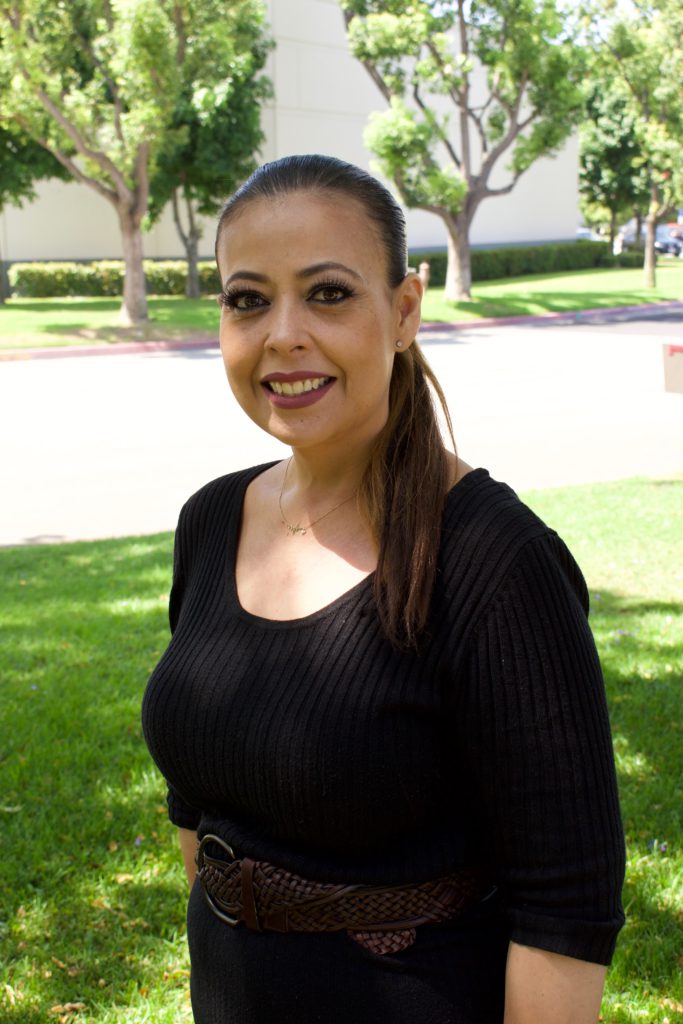Written by: Jocelyn Cortez, PHFE WIC Dietetic Intern
It’s common for a new parent to be worried about breastfeeding or chestfeeding. Parents may wonder if it will be painful, question their body’s abilities, or wonder where to go for immediate support.
Parents in traditional cultures lean on aunts, cousins, and neighbors for help. Support systems are critical for new parents. WIC is committed to being part of our community’s support system. PHFE WIC counselors include Certified Lactation Educators and International Board Certified Lactation Consultants (IBCLCs) with the training and experienced to provide expert individualized breastfeeding support and guide and encourage parents through their feeding journey.
We are here for you!
In honor of Breastfeeding Month, one of PHFE WIC’s lactation consultants, Jessica Estrada, IBCLC sat for an interview with dietetic intern Jocelyn Cortez to talk about her career journey, WIC insights, and her advice for expecting parents.

About Jessica Estrada, IBCLC
Jessica started her lactation support career in her role at WIC as a Breastfeeding Peer Counselor in 2010, providing nutrition and breastfeeding education to clients during their pregnancy and hands-on support once the baby was born. She then earned her International Board Certified Lactation Consultant (IBCLC) credential through UC San Diego in December 2019 and continues to share her breastfeeding and chestfeeding expertise with WIC families today.
Jessica’s passion for her lactation career has grown throughout her journey in WIC. As a mom herself, the challenges of being a first time mother and her experience with breastfeeding have called her to be a guide to other parents. She knows that there is misinformation on the internet and not having the proper guidance can contribute to falling away from one’s breastfeeding goal. Jessica continues to teach breastfeeding classes and serve clients with common breastfeeding concerns like latching difficulties, breastmilk production, using a breast pumping, monitoring babies’ weight gain, and hand-on support to help parents meet their feeding goals. She is also involved in a Physician Rotation Program at WIC where she teaches medical students about baby behavior and breastfeeding feeding patterns along with recommendations that teach the visiting medical interns about the breastfeeding world.
What does a Lactation Consultant do?
JE: A Lactation Consultant is a professional who specializes in the field of breastfeeding. We help mothers that are having breastfeeding problems. There may be many reasons a mother needs support, some examples but not limited to helping a mother with plugged ducts, mastitis, thrush, and helping babies that are unable to latch a baby to the breast or unable to maintain a latch. Right now because of the COVID-19 pandemic we are conducting virtual counselings to screen clients prior to working with our clients in person to assure the baby is latching well and assuring our mothers that the baby is gaining a healthy weight and thriving while the baby is being breastfeed.
Why should someone see a lactation consultant?
JE: If you need help, contact WIC ask for breastfeeding guidance with a lactation consultant. WIC gives you access for free consultation with a lactation consultant. Any questions a parent has about latching, breastmilk supply, or returning to work, WIC can help. In my profession, I reassure new mothers about the normal course of breastfeeding and parenting a new baby. If doctor referrals or follow-ups are necessary, we provide additional support in those areas as well.
How can a WIC parent connect with a lactation consultant?
JE: WIC has an infant feeding helpline number available to our clients with any breastfeeding questions. Certified Lactation Educators and Lactation Consultants (breastfeeding specialists) answer your breastfeeding questions and can schedule an in-person visit if needed. The hours are Monday – Friday from 9:00 am – 5:30 pm Pacific time at (888) 278-6455.
What is the secret to increasing milk production?
JE: The best way to ensure a great milk supply is to breastfeed frequently. There are no foods that mom must eat or avoid. We recommend that mom makes healthy choices when possible but in general enjoy her normal diet. The secret is breastfeeding every time the baby shows early hunger cues–10 or more times in 24 hours, which is about every 2-3 hours or sooner. The key is to stimulate the breasts often to increase the milk supply. When parents have milk supply questions, we can often reassure them by weighing their baby and discussing the baby’s hunger cues and feeding history.
What makes milk production decrease?
JE: Milk supply decreases when breastfeeding frequency decreases or when the baby is not breastfeeding effectively. Some medications are contraindicated during breastfeeding due to their effect on milk supply. In these cases we recommend that moms work with their healthcare provider to find an alternative medication to protect milk supply and support the parents decision to breastfeed or chestfeed.
Do C-sections cause lactation problems?
JE: Sometimes parents who have had a C-section benefit from some extra help with ideas for positioning their babies for comfort and supporting their breast milk production. We recommend monitoring the baby’s weight and number of soiled diapers, and reaching out to WIC soon after the baby is born so that we can identify issues and connect parents with with an IBCLC quickly. Connecting with WIC early helps protect the parent’s milk supply and get off to a great start with feeding.
What else do you want to share with parents?
JE: Do not feel embarrassed to reach out for help! At WIC we want to help you meet your feeding goals! Plan for breastfeeding to go smoothly, and it probably will! Your baby will be born with amazing instincts that will help breastfeeding get off to a good start. Nurse frequently and get help early. Every drop of breastmilk is a gift!
#phfewic #IBCLC #lactation #breastfeedingmonth




